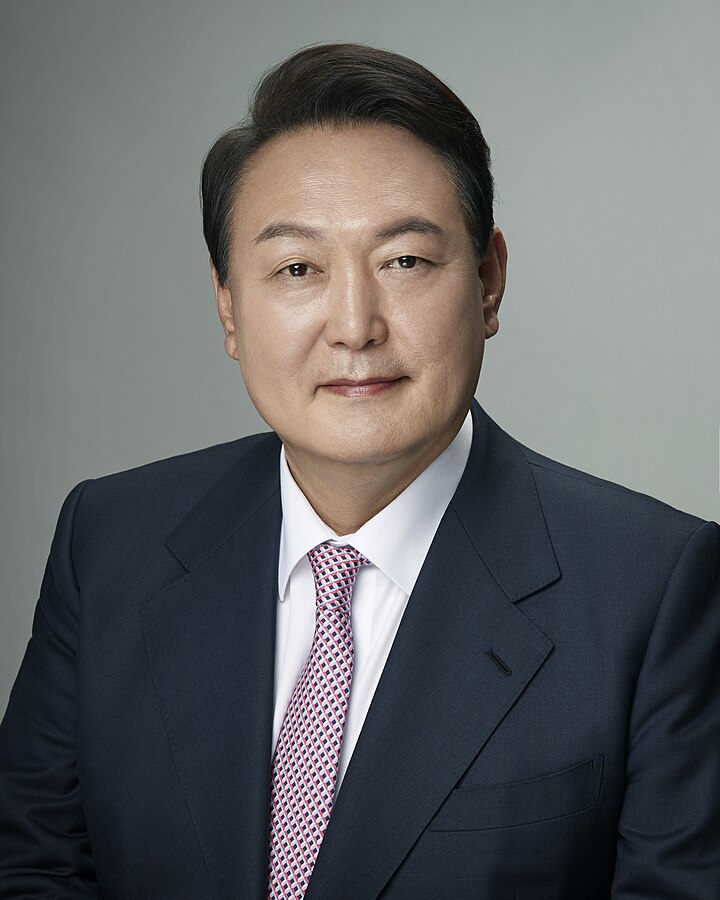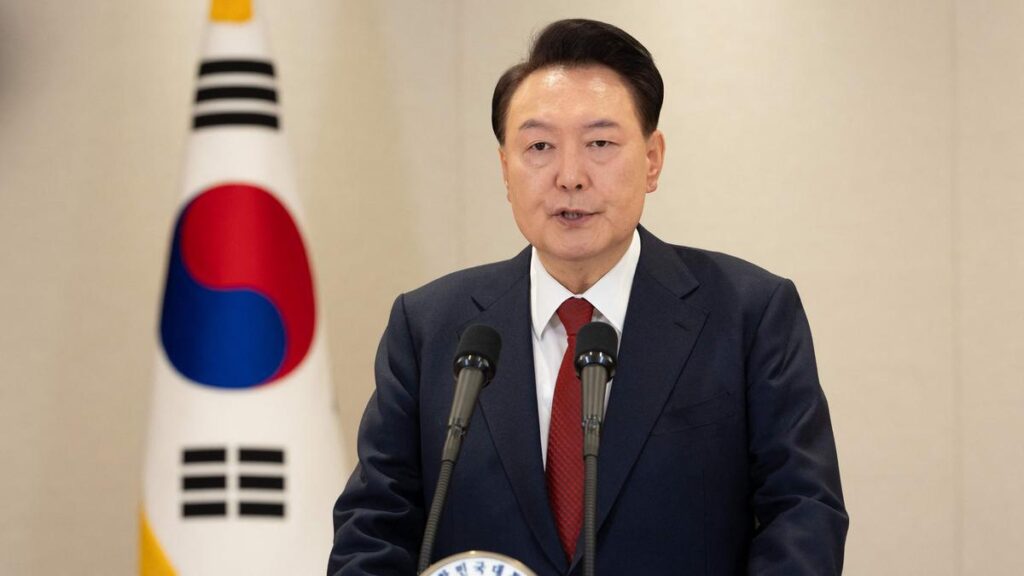Seoul, December 14, 2024 – South Korean President suspended as parliament has impeached President Yoon Suk Yeol over his controversial martial law order, an unprecedented political decision that has plunged the nation into uncertainty. The motion, which passed overwhelmingly with a 204-85 vote, marks a turning point in the country’s democratic journey, sparking jubilant celebrations and heated debates alike.
President Yoon’s powers have been suspended following the impeachment, and Prime Minister Han Duck-soo has assumed temporary presidential duties. The Constitutional Court now faces the task of deciding whether to permanently remove Mr. Yoon from office or reinstate his authority. This decision, expected within 180 days, could trigger a national election within 60 days if Yoon is dismissed.
South Korean President Impeached: A Nation Divided Over Impeachment
The impeachment followed weeks of escalating tension and public outrage over Yoon’s abrupt imposition of martial law on December 3. The decree, which lasted a mere six hours before being overturned by parliament, was the first of its kind in South Korea in over four decades. It disrupted the country’s political and economic stability, halting diplomatic efforts and alarming financial markets.

Protests against the martial law erupted nationwide, with President Yoon’s approval ratings plummeting amidst the backlash. Critics labeled the move an authoritarian overreach, while supporters argued it was a necessary step for national security.
National Assembly Speaker Woo Won Shik described the impeachment as a response to “the people’s ardent desire for democracy, courage, and dedication.” Outside the parliament, hundreds of thousands of demonstrators cheered the decision, waving banners and glowing K-pop light sticks. “We have preserved the constitutional order!” a lead activist declared to a euphoric crowd.
Meanwhile, a rival rally in central Seoul supporting President Yoon adopted a quieter tone following the announcement. Despite opposing views, the gatherings remained largely peaceful, reflecting the maturity of South Korea’s civic discourse.
Yoon’s Statement and the Road Ahead
In a defiant statement, President Yoon pledged resilience, calling his suspension a “temporary pause” in his presidency. “I will carry with me all the criticisms, encouragement, and support directed toward me, and I will continue to do my utmost for the country until the very last moment,” he said. He also urged government officials to maintain stability and ensure the continuity of essential state functions.
Prime Minister Han, now the acting head of state, has directed the military to strengthen its security measures to deter any miscalculated provocations from North Korea. Additionally, Han instructed the Foreign Minister to reassure international allies of South Korea’s steadfast policies and tasked the Finance Minister with mitigating economic risks posed by the ongoing political turmoil.
The Fallout of Martial Law
Yoon’s martial law decree sent shockwaves across the nation. The order, intended to address internal unrest, was criticized for its potential to undermine democratic principles. The swift parliamentary action to overturn it underscored the legislature’s commitment to safeguarding constitutional integrity.
The decree’s economic repercussions were immediate, with financial markets reacting nervously to the political instability. Investors expressed concerns over the country’s leadership crisis, though analysts noted that South Korea’s resilient institutions could mitigate long-term risks.
Public and Political Reactions
The impeachment vote was South Korea’s second attempt to address Yoon’s controversial actions after ruling party lawmakers boycotted an earlier motion. However, growing public discontent and mounting pressure from opposition parties led to bipartisan support for the latest vote.
Observers view the impeachment as a testament to South Korea’s democratic evolution. Despite the gravity of the crisis, the peaceful nature of public demonstrations and the parliamentary process highlights the country’s ability to navigate challenges within a constitutional framework.
Global Implications
The political upheaval in South Korea has drawn international attention. Neighboring countries and global partners are closely monitoring the situation, given South Korea’s strategic role in regional security and economic networks. Acting President Han has sought to reassure allies, emphasizing that the country’s external policies remain unchanged.
A Critical Decision Ahead
The Constitutional Court’s verdict will determine the trajectory of South Korea’s political future. If President Yoon is reinstated, he will face the challenge of rebuilding public trust and restoring stability. Conversely, his removal could usher in new leadership but also exacerbate existing divisions.
For now, South Korea stands at a crossroads, demonstrating both the vulnerabilities and strengths of its democratic system. As the world watches, the resilience of the nation’s institutions and its people will play a pivotal role in shaping the outcome of this political saga.






